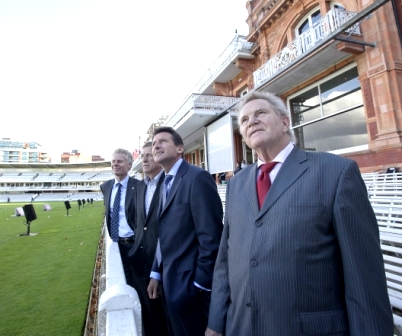
Riding the legacy wave: facilities can have a post-Games community use
Opportunity knocks: the legacy of London
With London’s Olympics almost upon us, Jonathan Ives wonders whether the 2012 Games could yet deliver a legacy that would serve the interests of sport around the world.

Riding the legacy wave: facilities can have a post-Games community use
It is a truth now universally acknowledged within sporting and political circles that any opportunity to carve out a lasting sporting legacy from the London Olympics has been lost [see In retreat: the legacy of London 2012, TLR Oct 2011] or, as Lord Moynihan, chairman of the British Olympic Association, put it recently and rather more pejoratively, “squandered”.
With London’s Olympic year upon us, it now seems like an awful long time since Jacques Rogge took an awful long time to prise his way into that envelope, opening a Pandora’s box of expectation and hope, investment and expenditure. However, while the legacy may already have proved a disappointment, from other perspectives London 2012 has already been a success, not least in the planning and delivery efforts of LOCOG and the Olympic Delivery Authority. With memories of the Athens Games still fresh in many minds, the International Olympic Committee has been lavish and regular in its praise of London’s progress towards its target dates, showering London’s organisers with plaudits and heaving a collective, and probably heavily sponsored, sigh of Olympic relief. With the final touches being put to the Olympic Park and test events taking place in the Olympic venues, in this aspect of the Games at least, Lord Coe and his acolytes have delivered handsomely.
Given this success, the scale of the original ambitions for London’s Games and that the UK is, despite fears and sometimes appearances to the contrary, still one of the world’s largest economies, there may well be some lessons to be offered for future hosts and some conclusions that the IOC might like to draw for future Games. Culture secretary Jeremy Hunt offered one of the first suggestions for improvement several months ago, a full year ahead of the torch being lit in Stratford, suggesting that the Paralympics might usefully be scheduled to take place ahead of the Games themselves. This would, he ventured, enable the Paralympics to take advantage of the interest and excitement during the build-up to the Games, maximising attendance and media coverage, rather than coming, as it does at present, after the energy and excitement of the Games has peaked.
As Olympics suggestions go, it seems eminently sensible but, as we know, sensible does not always cut it in the international sporting arena. The process of influencing the IOC’s decision-making processes is notoriously arcane and the decisions that do emerge are often baffling esoteric. Although no modern Olympic Games has yet delivered a positive legacy, there is little outward sign that the IOC is an organisation eager to embrace the concept of change, never mind continuous improvement. However, were Secretary Hunt to continue in a similar vein and expand his list of suggestions he could do the Olympic movement, and by extension the world of sport, a big favour.
There are numerous things that could go onto the list. The first is perhaps the most obvious: the Olympic Games are just too big. Although the UK is one of the world’s wealthiest nations, London has struggled to agree and afford a budget to deliver the Games. Other nations with less money to spend on a sporting festival should not be prevented from hosting the Games and would not be excluded were the Games scaled down to manageable proportions. It is obvious to all but the most vested of interests that there are too many sports on the Olympic list. Rather than adding to the number with sports that are desperate to haul themselves aboard the Olympic bandwagon, the IOC should, as befits these most inauspicious of economic times, cut and cut deep. While squash might have a good case for inclusion, many other sports have no business on the Olympic roster. This is, of course, the most highly divisive of sporting arguments but facts have to be faced and the bad news broken to some international governing bodies. Any sports for which the Olympics do not represent the pinnacle of achievement should be vulnerable; tennis, to offer just the most obvious of examples, should be encouraged towards the exit as soon possible, the first in a long line of sports that would quickly find solace and fortune elsewhere.
With fewer sports would come a rationalised requirement for facilities, saving money on buildings and all the accompanying infrastructure. Increased flexibility should be built in to the IOC specification, encouraging host cities to follow London’s lead in using existing facilities or making facilities available for reuse. This flexibility should also be extended to local circumstances, allowing cities to devise and host a Games appropriate to their unique circumstances. FIFA memorably promised “an African World Cup” when it took its own premier event to South Africa but then missed the point entirely by dictating every last detail, down to the type of grass used for the pitches, to ensure that South Africa’s World Cup was as anodyne and soulless as every other World Cup. Taking the same old show to a different part of the world will not make for distinctive or sustainable events and the IOC should be encouraged to learn this lesson.
Were the IOC to be persuaded of the need for change they could be encouraged to embrace different aspirations for the Olympic Games. The Games are, of course, the pinnacle of sporting achievement (for some, as already discussed, not all) but they could and should be about more than the medals. The development and promotion of sport should be made integral to the Games, delivering a legacy of participation, coaching and community facilities alongside and beyond the temporary touch down of the Olympic circus. Taking another lead from London, the IOC specification should require sports development to be at the centre of any bid but should take steps to ensure that, unlike London, it is actually delivered. A first step could be initiating research into what constitutes an effective legacy and then insisting on its implementation. The Cultural Olympiad, a major feature of London’s bid that was all too quickly abandoned as the budget tightened, should also be included as an essential element of the specification. That London will not present a medal for poetry, as it did in 1948, will be remembered as one of the many missed opportunities of 2012. The Cultural Olympiad should be the vehicle by which the Olympics become a distinctive, innovative and exciting insight to different cultures and different opportunities, a complete contrast to the current demand for an identikit Games bereft of character or imagination.
Of course, the IOC is not known for its flexibility or its probity but it has made progress since being forced to face some of its most egregious deficiencies following the bidding process for the 2002 Winter Olympics in Salt Lake City. Its reputation has also been enhanced, if only by comparison, by the diminishing reputation of FIFA, although the recent retirement of Joao Havelange from the IOC just days before he was due to answer allegations that he took $50 million in bribes over 24 years while serving as the head of FIFA, and the IOC’s dropping of the investigation on the grounds that the 95-year-old Havelange “is now a private citizen”, shows just how far both organisations have still to go on their respective journeys into the light.
Reform of the IOC is therefore one of the most pressing requirements. There are still too many political and commercial vested interests, and still far too many governments and heads of state willing to be complicit. Despite the IOC’s grandiose claims to the contrary, the organisation’s current objectives stretch little further than profiteering from their carefully nurtured commercial monopolies. The IOC’s role should be that of a supranational sports development agency. It could be re-established as a not-for-profit force for good, ploughing the revenue generated back into the sporting legacies that have been required and made explicit in the bids for future Games.
The idea of a permanent home for the Games in Greece, a concept apparently mooted to address at least some of the issues discussed here, was quickly dismissed but the IOC could use its commercial power to fund the major part of the Games and deliver the legacy it desires. Given the massive revenue generated by the Games, why should the IOC’s role not include the building of key facilities with specifications appropriate to post-Games use and a significant endowment to secure their long-term future.
To anyone who has followed the machinations of the Olympic Games bidding process and the workings of the IOC such ideas seem laughably unlikely but change is possible. While it is easy to compile a swift list of the decisions that come out of the IOC’s idiotic and casually self-interested decision-making process, these decisions could just as easily be good decisions based on different objectives dedicated to the long-term interests of sport and the engagement of people in sport across the world. London’s legacy may have been squandered but the 2012 Olympic Games could still leave a legacy for future hosts and for the Olympic movement itself, the legacy of change.
The Leisure Review, December/January 2011/12
© Copyright of all material on this site is retained by The Leisure Review or the individual contributors where stated. Contact The Leisure Review for details.
Download a pdf version of this article for printing
